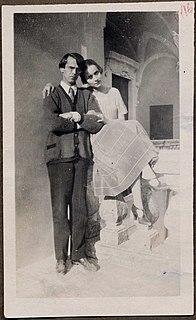A Quote by Stephen Hawking
There's no way to remove the observer - us - from our perceptions of the world.
Related Quotes
Quantum theory thus reveals a basic oneness of the universe. It shows that we cannot decompose the world into independently existing smallest units. As we penetrate into matter, nature does not show us any isolated "building blocks," but rather appears as a complicated web of relations between the various parts of the whole. These relations always include the observer in an essential way. The human observer constitute the final link in the chain of observational processes, and the properties of any atomic object can be understood only in terms of the object's interaction with the observer.
The pure love of Christ can remove the scales of resentment and wrath from our eyes, allowing us to see others the way our Heavenly Father sees us: as flawed and imperfect mortals who have potential and worth far beyond our capacity to imagine. Because God loves us so much, we too must love and forgive each other.
Of one thing we can be sure: our own future is inseparable from the larger community that brought us into being and which sustains us in every expression of our human quality of life, in our aesthetic and emotional sensitivities, our intellectual perceptions, our sense of the divine, as well as in our physical nourishment and bodily healing.
My paintings are inspirational for they allow the observer to experience infinite viewpoints and perceptions. They are not abstract for they represent what is actually more real than what our eyes are able to see. They allow the viewers to be inspired by taking their own perception beyond their senses and their surroundings.
Our senses enable us to perceive only a minute portion of the outside world. Our hearing extends to a small distance. Our sight is impeded by intervening bodies and shadows. To know each other we must reach beyond the sphere of our sense perceptions. We must transmit our intelligence, travel, transport the materials and transfer the energies necessary for our existence.
If we are at war with our parents, our family, our society, or our church, there is probably a war going on inside us also, so the most basic work for peace is to return to ourselves and create harmony among the elements within us - our feelings, our perceptions, and our mental states. That is why the practice of meditation, looking deeply, is so important.
In addition to giving comfort and joy, art also has the miraculous ability to let us live in other men's skins, to test our perceptions and beliefs against theirs, and perhaps to be changed as a result. It does this by portraying the world creatively, heightening our perception and enriching our understanding of things as they are.




































